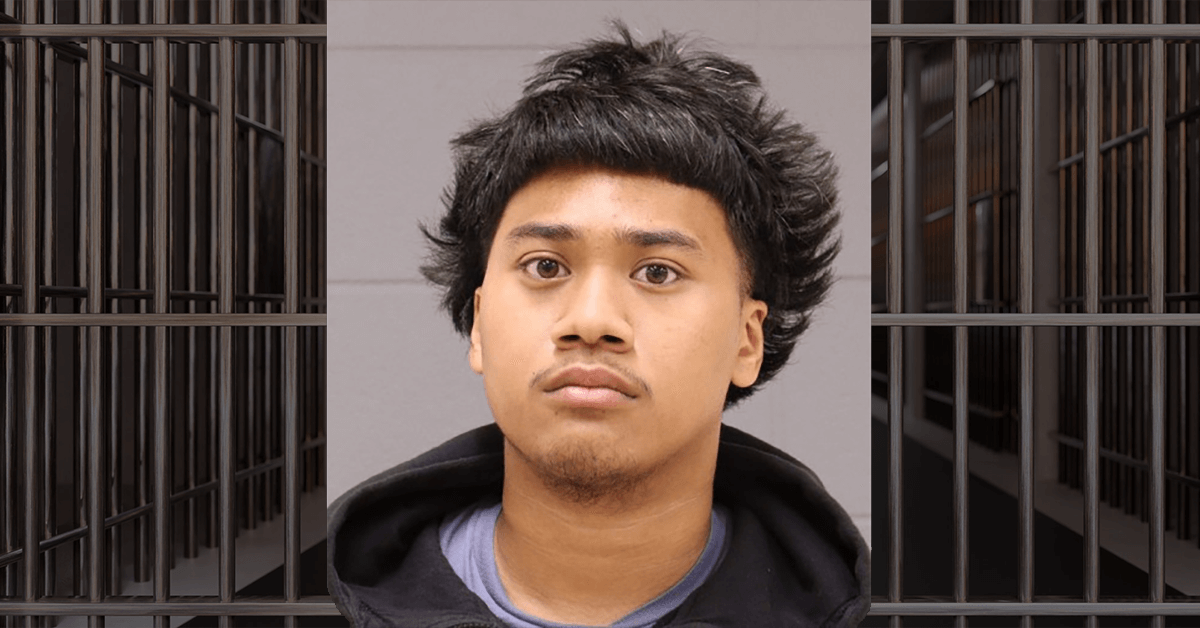Wojo Co. Launches The Wojolympics

Wojo Co., a cannabis brand based in Pinconning, Michigan, is launching a new live rosin collection called The Wojolympics. Inspired by the Summer Olympics, this collection features five unique flavors chosen by CEO Tyler 'Wojo' Wejrowski. The Wojolympics will be available at select dispensaries across Michigan, offering a new experience in live rosin.
Tyler 'Wojo' Wejrowski shared his thoughts on this release, saying, "This special release will be available at select dispensaries across Michigan, inviting cannabis enthusiasts to experience the pinnacle of Wojo Co.'s live rosin craftsmanship." Each Wojolympics box will include a complimentary Wojo Bee Terp Pearl, designed by local Michigan glass artists Will Star Glass and Brandon Dmop. These pearls ensure even distribution of concentrate and heat for consistent dabs.
A Tribute to the Olympic Rings
The Wojolympics flavor profiles are inspired by the Olympic rings, symbolizing unity, diversity, and excellence:
- Gassy Profile (Blue Ring): Represented by the hybrid strain Wojo Runtz, this profile has bold and robust notes.
- Citrus Profile (Yellow Ring): Malibu Marsha, another hybrid strain, offers vibrant and refreshing citrus flavors.
- Floral Profile (Purple Ring): Modified Punch, an indica-dominant strain, provides delicate and aromatic floral notes.
- Funky Profile (Green Ring): Dark Rainbow 2.0, also an indica-dominant strain, presents unique and adventurous funky flavors.
- Candy Profile (Red Ring): Tropic Keys, a hybrid strain, delivers sweet and playful candy-like notes.
These profiles celebrate the diversity and unity of the global cannabis community, similar to how the Olympic rings symbolize the coming together of athletes worldwide.
Introducing the Flavors of the Wojolympics
Team Blue – Wojo Runtz: Crafted by crossing Wojo Mints with Runtz, this strain offers resinous buds with a perfect blend of creamy cookie gas, ideal for a relaxing evening.
Team Yellow – Malibu Marsha: Known for its loud orange scent and flavor, Malibu Marsha delivers a sweet orange tang with a creamy finish, making it a delightful hybrid strain.
Team Purple – Modified Punch: A vigorous grower, this strain yields high-quality hash and flower with flavors reminiscent of cherry and grape Kool-Aid, perfect for nighttime relaxation.
Team Green – Dark Rainbow 2.0: Combining heavy funk with sweet sherb, this strain is perfect for GMO lovers looking for a potent, restful high.
Team Red – Tropic Keys: With a unique blend of fruity and gassy notes, Tropic Keys offers an award-winning flavor profile, making for a highly enjoyable dab experience.
The Wojo Bee Terp Pearl
Each Wojolympics box includes a custom Wojo Bee Terp Pearl, crafted by local glass artists Will Star Glass and Brandon Dmop. These pearls enhance the dabbing experience by ensuring even heat distribution and maximizing the robust flavors of each Wojo live rosin strain.

Commitment to Excellence and Community
The Wojolympics represents Wojo Co.'s efforts to innovate in cannabis consumption. Looking ahead, Wojo Co. plans to collaborate with local Michigan-based Olympic athletes for the upcoming Winter Olympics. These collaborations aim to highlight the journeys and achievements of athletes and content creators, reinforcing Wojo Co.'s connection to the Michigan community.
Dispensary Announcement Coming Soon!
Orders for the Wojolympics are coming in, and Wojo Co. will announce the select dispensaries across Michigan that will carry the Wojolympics box next week. Stay tuned for the official list and prepare to experience this new live rosin collection at a dispensary near you.
Man Sentenced for Theft of Vape Pens, Guns, and Cannabis Products

A man involved in the theft of thousands of vape pens, firearms, and cannabis products received a minimum prison sentence of 18 months this week.
Kevin H. Nguyen was arrested last year and subsequently confessed to selling stolen goods and purchasing stolen firearms, as indicated by court documents.
Authorities discovered the stolen items at Nguyen's residence in a mobile home park in Kent County's Gaines Township. The items included over 2,000 Breeze vape pens and hundreds of cannabis products.
Nguyen admitted to detectives from the Kent County Sheriff's Office that he knew the merchandise he was selling was stolen, court records show.
He faced several felony charges, including three weapons offenses and receiving and concealing stolen property. He pleaded guilty to three charges, leading to the dismissal of the others.
A judge in Kent County sentenced Nguyen to a prison term ranging from 1.5 to 5 years. He is currently held in the Kent County jail, awaiting transfer to the Michigan Department of Corrections.
Following his arrest in October, Nguyen told detectives that he was aware the items were stolen from dispensaries because the sellers were incarcerated, according to court documents.
During the search, detectives seized eight handguns, two of which were reported stolen. One handgun had a switch attached, converting it into a machine gun. Court documents also reveal that three additional switches were found during the search.
Nguyen acknowledged to detectives that he was aware the firearms were stolen when he purchased them.
Tyrone Township Enacts 180-Day Moratorium on Medical Cannabis Facilities

Tyrone Township has enacted a temporary moratorium on medical cannabis facilities, halting all development, permitting, and operations for a period of 180 days. The Board of Trustees approved this resolution to allow time for a thorough review and potential revision of the township's current ordinance concerning medical cannabis.
Reviewing Ordinance for Compliance
The Board has tasked the Planning Commission with evaluating the township's existing regulations, focusing particularly on minimum parcel sizes and suitable locations for such facilities. This review aims to ensure compliance with Michigan's Medical Marijuana Act while avoiding exclusionary zoning practices that could limit where these facilities can be established.
The resolution acknowledges that there have been several inquiries about medical cannabis regulation within the township. Consequently, the township believes it is in its best interest to re-examine the Medical Marijuana Act along with associated rules, regulations, case law, attorney general opinions, and other relevant information.
Public Input and Supervisor's Comments
During the board meeting, Supervisor Mike Cunningham emphasized the importance of revisiting the current ordinance. He noted that there have been public comments and discussions indicating the need for a comprehensive review. "We do have an ordinance in place, but we want to make sure it's up-to-date and aligns with the latest legal and community standards," Cunningham stated.
The decision to impose the moratorium reflects the township's commitment to carefully consider all aspects of medical cannabis regulation, ensuring that any future development is conducted in a manner that benefits the community while adhering to legal requirements.
Next Steps for Tyrone Township
The Planning Commission's review will involve a detailed analysis of current zoning laws and how they apply to medical cannabis facilities. The goal is to create a balanced approach that accommodates medical cannabis operations without imposing unreasonable restrictions or creating conflicts with existing land uses.
Conclusion
Tyrone Township's 180-day moratorium on medical cannabis facilities represents a proactive step towards thoughtful regulation. By re-evaluating the township's ordinance and considering public input, the Board of Trustees aims to develop a framework that supports both the community's needs and the legal landscape surrounding medical cannabis.
Michigan Ranks Second in U.S. Cannabis Sales for First Half of 2024

Michigan has emerged as a formidable player in the U.S. cannabis market, securing the second spot in state-by-state cannabis sales for the first half of 2024. The state reported a staggering $1.6 billion in sales, trailing only behind California, which amassed over $2 billion despite facing significant challenges.
California, with its well-established cannabis market, continues to lead the nation in total sales. However, the state is grappling with declining legal market sales attributed to stiff competition from the illicit market and high taxes. Despite these issues, California still averages around $347 million in monthly sales.
Michigan's rapid ascent in the cannabis industry is noteworthy, especially considering that it only began legal adult-use cannabis sales in 2019. The state's average monthly sales reached $270 million in the first half of 2024, reflecting robust consumer demand and effective market growth strategies.
Per Capita Sales Highlight Michigan's Dominance
While California leads in total sales, Michigan outshines the Golden State in per capita sales. For the first half of 2024, California's per capita sales for its 21+ population stood at $74.90. In contrast, Michigan reported an impressive $233.97 per capita for the same demographic. This substantial difference underscores Michigan's efficient market penetration and strong consumer base.
Record-Breaking Sales Months
Both states witnessed their highest sales months in March, April, and May, contributing significantly to their half-year totals. The thriving market activity during these months played a crucial role in solidifying their positions as the top two cannabis markets in the U.S. California and Michigan are the only states to surpass the $1 billion mark in legal cannabis sales so far this year.
Michigan's Market Dynamics
Several factors contribute to Michigan's impressive performance in the cannabis industry. The state's relatively recent entry into the legal market allowed it to adopt best practices from other states, enhancing regulatory frameworks and business operations. Additionally, Michigan's competitive pricing and diverse product offerings have attracted a wide range of consumers.
Michigan's regulatory environment has also been conducive to market growth. State officials have implemented policies that support both businesses and consumers, fostering a stable and flourishing market. This approach has enabled Michigan to swiftly climb the ranks and compete with long-established markets like California.
Looking Ahead
As the cannabis industry continues to evolve, Michigan's strong performance sets a precedent for emerging markets. The state's ability to generate high sales figures and maintain a strong per capita sales rate demonstrates its potential for sustained growth. Observers will be keenly watching Michigan's market strategies and regulatory developments as they unfold in the latter half of 2024 and beyond.
Kalamazoo County Revises Employee Drug Testing Policy

The Kalamazoo County Board of Commissioners has unanimously approved revisions to its employee drug testing policy, introducing new provisions regarding legal substances. This decision was made during the board's meeting on Tuesday, July 16th.
Previously, the county's drug-free workplace policy stipulated strict disciplinary actions for employees testing positive for drugs or alcohol. These measures could range from disciplinary action "up to and including discharge for a first offense" to other corrective actions, depending on individual circumstances.
The updated policy now provides the county with the discretion to decide whether an employee should face disciplinary action for testing positive for legal drugs or alcohol. Despite this change, the county maintains a zero-tolerance stance on illegal drugs, according to county spokesperson Taylor Koopman.
A significant modification in the policy is the replacement of the term "will" with "may" concerning potential disciplinary actions. This change grants the county greater flexibility in handling cases involving legal substances.
The agenda packet did not provide a specific reason for the policy revision, and Koopman did not immediately respond to inquiries regarding the motivation behind this change.
Additionally, the board voted to eliminate a policy related to medical marijuana, aligning the county's regulations with state laws.
Shango Facility Commits to Resolving Odor Issues in Lapeer

Monday evening, executives from SDRK Group, LLC, operating the Shango cannabis cultivation facility on Saginaw Street at the former Lapeer Grain site, presented their ongoing efforts to address persistent odor issues to the Lapeer City Commission. The problem has plagued the area for about a year, prompting community concern and regulatory scrutiny.
Andy Shango, a representative of the facility, attended the meeting along with Operations Director Rick Thornton and consultant Joe Israel. Shango emphasized the importance of resolving the odor issue not only for their building but also to prevent blame from falling on other nearby facilities.
Thornton detailed their two-part strategy to mitigate the cannabis odor. The primary solution involves implementing negative pressure in the cultivation, drying, and storage areas. "Negative pressure should eliminate the odor," Thornton explained, estimating that this system could be operational within 90 days, pending the delivery of necessary equipment. If this measure proves insufficient, a secondary, more costly option involves negatively charging the air, using advanced air scrubbers and ozone gas. This process could take up to 120 days to complete.
Ozone technology is a clean method for purifying air in cannabis facilities. Industrial ozone generators produce ozone gas by passing oxygen through a high-voltage electrical discharge, which splits oxygen molecules into individual atoms. These atoms then combine with other oxygen molecules to form ozone gas, which reacts with the cannabis odors and reverts to oxygen, leaving no harmful residues.
"One way or another, we will resolve this," Shango assured, advocating for the City to establish a comprehensive odor ordinance applicable to all facilities.
In April, the City of Lapeer issued a citation to SDRK for the persistent odor. The Michigan cannabis regulators have indicated that SDRK's grow license renewal may be contingent on resolving this issue.
On July 10th, SDRK's legal counsel, Michael J. Gildner, sent a letter to Lapeer City Manager Mike Womack outlining their ongoing efforts to mitigate the odor complaints. "My client disputes the City's assertion that it is the sole source of odor complaints and believes it has been unfairly targeted. Nonetheless, SDRK is committed to making operational changes to be a better neighbor," Gildner wrote.
Womack responded with skepticism about the timeline. "I've heard various estimates, from 90 days to 120 days. What matters is eliminating the odor," he said.
According to SDRK documents provided to city officials, the facility began cannabis cultivation in June 2023, gradually increasing to a maximum of 4,000 plants housed in renovated pole barns. The first odor complaint from a city building inspector was recorded in September 2023.


 Helpful Links
Helpful Links